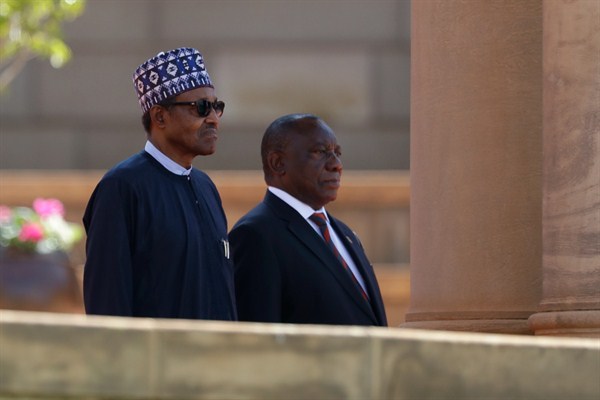Nigerian President Muhammadu Buhari traveled to Pretoria in early October to meet his South African counterpart, Cyril Ramaphosa, just weeks after the latest outbreak of attacks against foreigners—including Nigerians—in South Africa in September. The visit was intended to smooth over bilateral relations between Africa’s two largest economies, which have been bumpy in recent years, in part because of periodic episodes of xenophobic violence in South Africa.
Xenophobic violence has been a problem in South Africa for years, with recent peaks in 2008 and 2015 prior to the most recent attacks in September. Analysts have pointed to numerous causes, notably a sense among some South Africans that foreigners compete for scarce jobs and are responsible for the country’s high crime rate. Both accusations lack much basis, however. In reality, unemployment, crime and poverty are so widespread in South Africa that the relatively small foreign population—less than 2.5 million people out of a total population of more than 55 million—cannot be credibly blamed for the problems. Foreigners, nevertheless, sometimes become scapegoats for frustrated South Africans.
Although Nigerians make up a relatively small proportion of South Africa’s foreign population—approximately 70 percent of which comes from neighboring Zimbabwe, Lesotho and Mozambique—Nigeria’s government has been one of the most vocal in responding to the xenophobic violence. Following the most recent attacks in Pretoria in early September, Nigerian Vice President Yemi Osinbajo canceled his scheduled appearance at a World Economic Forum event in Cape Town, and Nigeria recalled its high commissioner. The Nigerian government also repatriated some 600 of its citizens.

